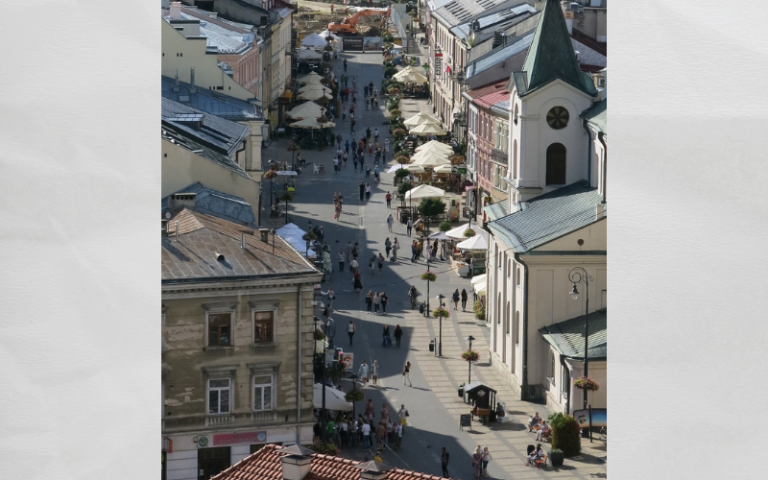Poland: migrants’ perspectives and experiences
05 June 2023–06 June 2023, 9:30 am–5:30 pm

Please join us for the SSEES Polish Migration Conference organised by Anne White. Registration is free but essential.
This event is free.
Event Information
Open to
- All
Availability
- Yes
Cost
- Free
Organiser
-
Prof Anne White
Location
-
Masaryk RoomUCL School of Slavonic and East European Studies16 Taviton streetLondonWC1H 0BW
In recent years, migrants living in Poland as well as Poles abroad have experienced the upheavals of the Covid-19 pandemic, Putin’s 2022 invasion of Ukraine, the cost-of-living crisis and in some cases also Brexit. Over the same period, Poland has transitioned to a new identity as a country with net immigration, although migration from Poland continues apace. The papers present migrants’ own experiences, perspectives and strategies for adapting to the unexpected. Since the first SSEES Polish Migration Conference in 2015, many Polish migration scholars have made their own transition from studying Poles abroad to also researching other nationalities living in Poland; this year’s conference programme reflects their dual expertise, enabling cross-country comparisons which contribute to greater understanding of migrant experiences globally.
The conference will take place in the Masaryk Senior Common Room, SSEES, 16 Taviton St, London WC1H 0BW. Most papers will be delivered face-to-face but the conference will also be streamed on Zoom. To register, please contact the organiser, Anne White, Professor of Polish Studies, at anne.white@ucl.ac.uk, saying whether you would like to participate in person or on-line. There is no registration fee.
- Conference programme
Monday 5 June
Welcome 9.30-9.40
Undervalued migrant workers 9.40-11.25
Anna Horolets: Navigating transnational moral regimes: The pathways to recognition of Polish migrant women working in cleaning and care jobs
Mateusz Karolak and Könül Cəfərova: ‘Essential, cheap or dangerous’? The life and work experiences of migrants in Poland during the COVID-19 pandemic
Kasia Narkowicz: The only thing we received was the clapping': experiences of Polish essential workers during Covid
11.25-11.50 Coffee
Othering and inequalities 11.50-1.00
Aleksandra Lewicki: East-West inequalities and the ambiguous racialisation of ‘Eastern Europeans’
Dirk Uffelmann: Poles among Others: Literary perspectives on mutual othering among Polish and other migrants in Britain since 2004
1.00-2.00 Lunch
Migrants’ access to education and health in Poland 2.00-3.45
Krystyna Slany and Magdalena Ślusarczyk: Migrant children in a Polish school and their integration during the COVID-19 pandemic. Experiences of children and teachers.
Elżbieta M. Goździak: Troubled Belonging: The Religious Exclusion of Migrant Children in Polish Schools
Karolina Follis: Infrastructures of health and border control: Ukrainians’ access to healthcare in Poland
3.45-4.15 Tea
Transnational practices and integration in the context of Covid and Brexit (Part 1) 4.15-5.25
Weronika Kloc-Nowak and Louise Ryan: Informal care in Polish migrants’ families immobilised by Brexit and COVID-19: experiences and implications for future
Katarzyna Górska, Joanna Kulpińska and Anna Wyrwisz: (Post)pandemic integration strategies of Polish migrants in the UK and Germany
_____________________________________________________________________________________________
Tuesday 6 June
Brexit (Part 2) 9.00-10.10
Kathy Burrell, Kate Botterill and Anna Key: Brexit Bureaucracies: Labours and Legacies of the Settled Status Treaty
Grzegorz Piotrowski: Poles vs. Brexit - challenges and adaptation strategies
Coffee 10.10-10.30
Return and ‘return’ 10.30-11.40
Karolina Ćwiek-Rogalska: Coming Back Home? Narratives on the ‘Recovery’ in Post-Displacement Poland
Małgorzata Dziekońska: Place of return and the re-adaptation process: The case of Poles returning from long-term international migration to different locations in the country of origin.
Fruit 11.40-12.00
Social support, social capital and mobilisation12.00-1.10
Izabela Grabowska, Ivanna Kyliushyk and Agata Jastrzebowska: Perceived social support embedded in social capital in three groups in Poland: Polish returnees, Ukrainian migrants, and non-migrants
Katarzyna Andrejuk: Ukrainian diaspora mobilization in Poland in response to the Russian invasion of Ukraine
Lunch 1.10-2.00
Student and lifestyle migrants in Poland 2.00-3.45
Könül Cəfərova: The biographical meaning of education in migrants’ experiences: the case of high-skilled migrants from Azerbaijan in Poland
Agata Chutnik: Paths of young representatives of the Polish minority in Lithuania coming to Poland for educational purposes
Aleksandra Szkudlarek: Coincidence or a conscious choice? British lifestyle migrants in Poland
Tea 3.45-4.15
Cities of migration 4.15-5.25
Katarzyna Winiecka: Migrants' life in Bialystok - the example of a (non) homogeneous city of Eastern Poland. The role of intermediary groups?
Anne White: Polish cities of migration: life in Kalisz, Piła and Płock as experienced by Ukrainians and ‘other foreigners’ -- Armenian, Australian, Bangladeshi, Belarusian, Italian, Kazakh, Kenyan, Nigerian, Syrian, Russian, Taiwanese, Turkish, Uruguayan and Venezuelan.
Conclusion 5.25-30
Image credit: Howard White
 Close
Close

